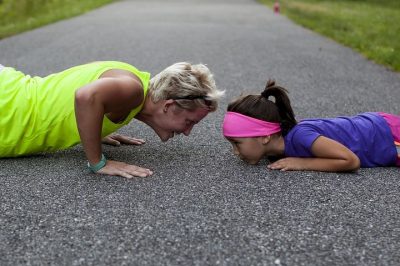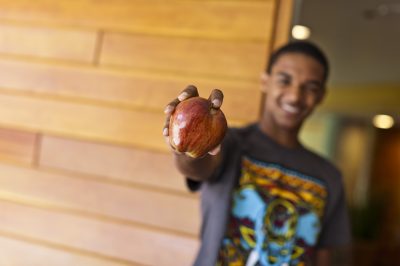Breakfast Club Blog

The BOOST Breakfast Club Blog is a curated space where bloggers from around the world contribute content on a continual basis about a variety of topics relevant to in and out-of-school time. The BOOST Breakfast Club blog is at the heart of an ongoing dialogue where expanded learning and education professionals share their personal thoughts and stories from the in and out-of-school time field. They also tell us what they ate for breakfast!
The BOOST Breakfast Club Blog is Brain Food for In and Out-of-School Time Leaders!
Interested in becoming a blogger? Email breakfastclub@boostcollaborative.org
Click here to Register for a free account or click here to Login to your existing account.
Games! Games! And More Games: Five ACTIVE Indoor Games For Winter!
Winter weather can prove to be a significant challenge for keeping kids physically active, particularly when indoor space is relatively confined or not readily available. While large format activities and games may not be ideal in this situation, there is still a wide variety of simple physical activities that can be included in stations, circuits, and other formats to get kids moving. Below are five fun physical activities for kids that require little to no space or equipment and are ideal opti...Read More
The Science and Art of Helping Kids Love Physical Activity
Creating a physical activity program for grade schoolers that engages all children involved is both a science and an art. The science of child development, motivational psychology, and human behavior help us create an enriching program. The art of creating a fun, play-like, inclusive environment gets all kids excited to participate. Using imaginative, play-based activities to introduce critical developmental skills is a perfect culmination of the art and science behind getting kids to enjoy bec...Read More
An Instant Activity Blueprint to Get All Kids Moving
It’s a fact. Kids need physical activity. Frequent physical activity has been linked to a variety of positive developmental outcomes for kids, including improved health, cognition, and even behavior. As “fitness mentors” it’s important we provide kids ample opportunities to be active throughout the day. While this sounds good in theory, the time, space, and equipment we have available to inspire kids to be active may be limited. Not to mention, we can quickly run out of ideas as little bodies an...Read More
#GirlsAre Builders, Explorers and Adventurers
This month the Alliance for a Healthier Generation and the Clinton Foundation are joining forces to inspire a new generation of strong active women. Girls are fierce, but we know that by age 14, girls drop out of sports two times faster than boys and less than 50% of 12-15 year old girls get the recommended amount of physical activity. To celebrate #GirlsAre, I reached out to nine leaders who are helping to flip this script. This group of nine are builders, explorers and adventurers, stretching ...Read More
3 Ideas to Develop Healthy and Active Role Models this Fall
Our last blog featured 6 Ideas to Make Your Next Staff Meeting Fun and Healthy this Summer. Did you try one of them? Maybe you made “Silly Water” for a retreat or added some physical activity to your regular staff meeting. Building on those tips, here are a few ideas to help you continue to develop healthy and active role models this fall. Let us know how it goes by tweeting to @HealthierGen. Developing Healthy and Active Role Models this Fall 1. Do you have a fall festival or family...Read More
No Children Left on Their Behinds
One of the powers of play is that it gets us to exercise our bodies as well as our minds. – David Elkind Childhood is becoming increasingly sedentary. Tragically, many afterschool programs are becoming increasingly sedentary as well. Today, childhood is spent mostly indoors, watching television, playing video games and working the Internet. When children do go outside, it tends to be for scheduled events – soccer camp or a fishing derby – held under the watch of adults. In a typical ...Read More





